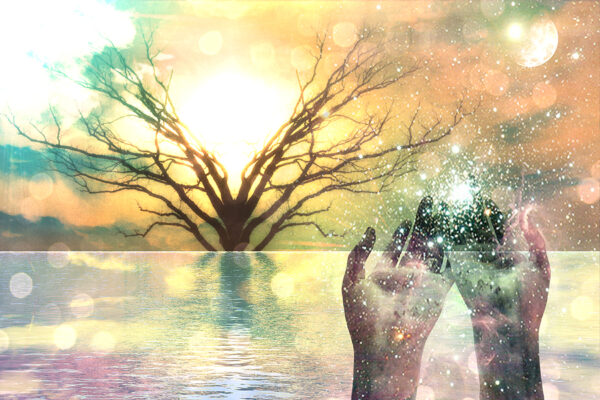You could say that meshing stuff together is an Ahie trademark. Born into blended Maori/European family, he rocked off to business school, scaled the traditional corporate ladder and then sat down for bit of think.
Among other things, he now heads business coaching company Shirlaws New Zealand, whose work centres around the core belief that, sooner or later, business growth will falter unless it is nourished with balanced diet of attention to commercial issues (the hard-edged stuff such as revenues, efficiencies and profits) and softer issues such as communication skills, teambuilding and leadership.
In Ahie’s own case, his blended Maori/European roots opened options to walk both cultural paths. It was his Maori grandfather, Taranaki region kaumatua James Ahie, who counselled the young Michael from an early age to hold Maori in his heart and plunge into European world.
“At some point in my life, he said, I would know when the two paths would merge and cross over.”
When we talk, Ahie listens thoughtfully to questions and holds his silences with ease. He is comfortable enough in his own skin to cite in his CV his five ‘ground rules’ for working and uses them, he says, to filter decisions around which companies he now spends time on, invests in or coaches.
Now in his 40s, he had already in his 20s distilled his personal code of conduct down to five simple values – trust, open communication, teamwork, integrity, and balance between work and home life. That they now take pride of place in this public manifestation of his private self speaks volumes about personal journey that has seen him mesh together some very divergent commercial and cultural strands of his own.
Ahie joined Toyota New Zealand straight from business school, in over eight years climbing through the ranks before joining the New Zealand Dairy Board as global manager, strategic planning and then New Zealand Milk where he was based in Melbourne. stint at Mainland Foodservice in Melbourne followed. Then shift back to New Zealand as general manager solutions for Wrightson. Consciously or not, he was slowly working his way home.
“Michael Ahie has come home to work for his people as well as the company,” read lyrical line in report by South Taranaki District Council mayor Mary Bourke.
His grandfather had died but his prophesied point of convergence of Ahie’s Maori and European pathways was kicking into life.
“Two years ago, something just went ‘crunch’,” says Ahie. “Now I know what he was talking about.”
At spiritual level Ahie’s grandfather started to re-enter his consciousness. “I’d be doing some research and I’d see piece that he had been involved in or written. I was doing some research for Te Puni Kokiri and all of sudden there was my grandfather, his face, sitting there in photo at marae many years ago. He kept popping up all the time.”
There was, says Ahie, whole bunch of other stuff going on in his career. “After 18 years of corporate life, I reached point and thought, ‘hang on, is this what it’s all about?’ very goal-directed me – which I was since university – had been saying, ‘I’m going to be world-class CEO’. That was my whole goal in life. But the closer I got, the less I liked it. What does it actually mean to be world-class CEO?”
Ahie realised he wasn’t prepared to sacrifice family life to take the next step up. Nor, he realised, was he going to score the CEO’s role at Wrightson.
“That was the real kicker. Everything I’d gone for. Here I am in Wrightson merger. There is succession plan and someone says; ‘it’s not going to be you’.”
He readily admits that it took him some time to come to grips with that idea. “My whole life for 20 years had been directed towards being top CEO. What do you call it? Mid-life crisis? Awakening? I don’t know.
“But whatever it was, whole lot of junctures happened around me which made me think ‘I’m at checkpoint. There’s decision point for me here.’
“I’d also started looking for other CEO roles and got one – but then had another decision point where one of the directors and I didn’t see eye to eye, so he did his job at the governance level. He said to me, although not quite in these terms, ‘you don’t want this job’.”
It was, Ahie agrees, huge crisis point in his career. “I was going to leave Wrightson on the Friday, take two weeks off and go straight into this other CEO role. Two weeks out from my departure from Wrightson it all went ‘puff’.”
Ahie went home to his wife Janine – and very brief conversation.
“Is that it?”
“Yes.”
“What are we going to do?”
“I don’t know. Let’s go overseas.”
They scooped up the children and took three months off. It was, says Ahie, full stop.
It would be fair to say that many of Ahie’s current activities remain beneath Google’s radar. True, his portfolio of directorships and investments include well-known coaching company Shirlaws – he’s on the boards of both the local and international organisations. He’s also director of Palmerston North-based Bio Commerce Centre and the Manawatu Investment Group – both of which nurture local agri-tech start-ups through their first tentative steps.
Ahie is also managing director of Clearwater, which helps businesses define their strategies and actions. But then there’s slew of smaller produce growers and bunch of trusts for the wider Ahie family. He is, for example chair of both fresh produce grower Woodhaven Gardens and Kapiti Green, New Zealand’s largest grower of broccoli.
It could be argued that the same relative lack of public visibility applies to stack of stuff undertaken by Maori whose economic contribution to New Zealand’s coffers remains hard to measure and whose wider potential remains untapped.
Figures on the size of the Maori economy haven’t been updated since Te Puni Kokiri report in 2003 which put its 2001 value at around $9 billion, Ahie points out. That encompassed the commercial assets of Maori trusts and organisations, private Maori-owned businesses, trustee land assets and iwi treaty settlements.
“In any case, we have to be careful that we don’t have divisiveness around that. It’s not about Maori economy which sits in isolated space. This is really key part of the New Zealand economy. Let’s acknowledge that and work together to make sure it remains that way.”
To Ahie’s mind, collaborative events such as the Maori economic summit, Hui Taumata, held in Wellington two years ago, both helped generate sense of excitement around Maori economic potential and pinpointed whole bunch of points on what Maori need.
The great thing, he believes, is that conversation occurred. “Two years on, there’s growing acknowledgement that the Maori economy is quite significant within the wider New Zealand economy and that it encompasses whole bunch of entrepreneurial people. If we’re able to make some differences to productivity in the [so-called] Maori economy, we can make huge difference to the country’s performance.
“Here is this effervescent, entrepreneurial flavour in our make-up and our whole economic development’s been built on Maori entrepreneurship with really strong European cultural connection. That’s what makes New Zealand work. Imagine if we could continue to unlock that.”
Maori human capital, for starters, remains stumbling block. It staggers him, he says, that over half of all young Maori men leave school without single qualification. Maori women score higher but overall figures do not bode well.
“If current trends continue, by 2040 40 percent of New Zealand’s workforce will be neo-Polynesian… These are the kids that will be supporting you and I when we’re retired. What’s that going to do for our international competitiveness? … We’ve got workers who are in box one. They’re labourers when we’re in global economy where that’s not going to work for us. It won’t be about muscle power in the future.”
Add to that, some issues surrounding the peculiarities of Maori governance which, centring around trusts and incorporations, can get tang

Embracing the future of work – HR Changemakers Festival 2024
Employers and HR professionals grappling with how to attract, retain and engage their people during times of economic uncertainty are being invited to learn from a top Kiwi entrepreneur and










